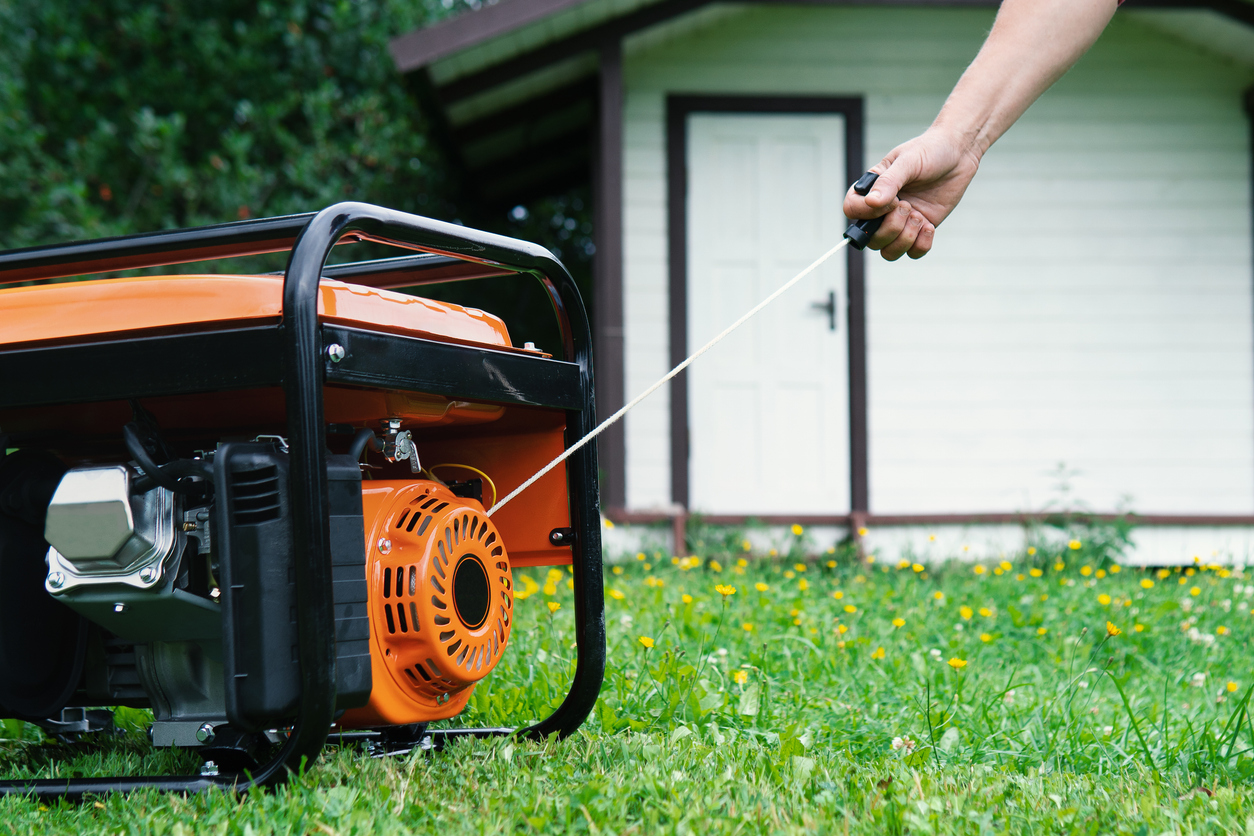As power backup generators become increasingly common in residential areas, a question often arises: Is living near a power backup generator harmful?
This post explores the safety implications of residing close to these essential devices, shedding light on common concerns and preventive measures.
Understanding Generator Emissions
Power backup generators, particularly those running on fossil fuels like gasoline, diesel, or natural gas, emit exhaust gases similar to those of any combustion engine.
The primary concern here is carbon monoxide (CO), a colourless and odourless gas that can be dangerous; even fatal, if inhaled in large quantities.
Proper installation and maintenance are crucial to ensure these emissions are safely managed.
Differentiating Risk Factors Among Generator Types
When considering the safety of living near a power backup generator, it’s essential to differentiate between the types of generators available, as each comes with its own set of risk factors:
Gasoline Generators: These are commonly used for temporary power solutions but pose the highest risk in terms of fire hazards and carbon monoxide emissions. They require rigorous safety measures, including outdoor operation and meticulous refuelling practices to avoid spills and vapours igniting.
Diesel Generators: Known for their efficiency and longevity, diesel generators also emit nitrogen oxides and particulate matter along with carbon monoxide. These emissions can be harmful if inhaled, so similar to gasoline generators, these units should operate in well-ventilated areas away from residential spaces.
Natural Gas Generators: While cleaner than gasoline and diesel generators, natural gas units still produce carbon monoxide. However, they are connected to the home’s natural gas supply, eliminating the risks associated with fuel storage. Their emissions are lower, making them a safer option near residential areas, but they still require proper ventilation.
Propane Generators: These emit fewer toxins and pollutants compared to gasoline and diesel generators. Propane is also a stable fuel that can be stored safely for extended periods. However, the systems must be checked regularly for leaks to prevent fire risks.
Solar Generators: Completely emission-free, solar generators are the safest option in terms of chemical and noise pollution. They harness sunlight to generate electricity, storing it in batteries without the need for combustion, thus eliminating the risks associated with fuel-based generators.
Battery Backup Systems: Similar to solar generators, battery backups do not produce emissions and are silent. They store electricity from the grid or solar panels and provide power during outages. These systems are ideal for indoor use as they present no risks of carbon monoxide poisoning or fire.
Incorporating Safety with Generator Choice
Each type of generator offers different benefits and risks.
Choosing the right generator involves balancing the need for power with the potential safety risks associated with its operation.
Homeowners should consider their specific needs, the typical duration and frequency of power outages in their area, and the proximity of the generator to living spaces when making a decision.
Key Considerations for Generator Placement and Safety
Proper Ventilation: Ensuring that your generator is placed in a well-ventilated area is crucial. This typically means outdoor installations with sufficient clearance from windows and vents to prevent exhaust gases from entering the home.
Regular Maintenance: Regular checks and maintenance ensure that the generator functions efficiently and safely. This includes inspecting the exhaust system for leaks and ensuring all connections are secure.
Noise Levels: Another aspect of generator safety is noise pollution. While not directly harmful to health, prolonged exposure to loud noise can cause stress and disturb sleep. Modern generators are often equipped with noise-reducing technologies to mitigate this issue.
Balancing the Risks with Benefits
While there are risks associated with living near a power backup generator, these are generally manageable with the right precautions.
The benefits, especially during extended power outages, can outweigh the risks.
Generators provide crucial power to keep lights on, preserve food, and maintain heating or air conditioning systems during emergencies.
Innovations in Generator Technology
Advancements in technology have led to cleaner and safer generators. Many newer models have built-in CO detectors and automatic shut-off features that enhance safety.
Additionally, alternative fuel options like solar-powered or battery backup systems offer environmentally friendly alternatives that reduce emissions.
Informed Choices for Home Safety
Living near a power backup generator is not inherently harmful if proper safety measures are in place. As technology advances and more eco-friendly options become available, the risks continue to diminish. If you’re considering a generator for your home in or near Prescott, Ontario, contact Beattie Dukelow Electrical Inc. We offer expert advice and installation services to ensure your power backup solutions are safe and reliable.
Contact us today to learn more about power backup generator safety and how to secure your home’s energy needs without compromising on health and comfort.

